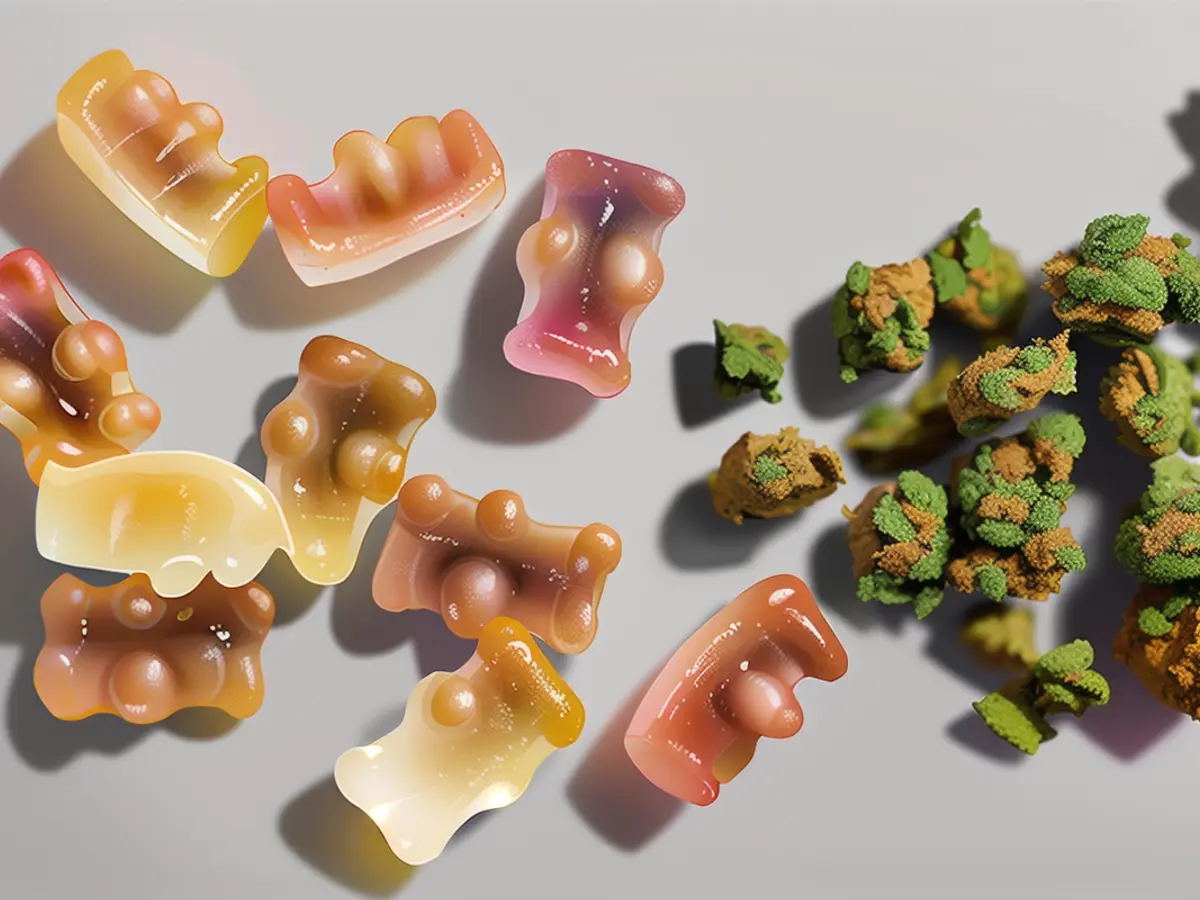Tripled number of cannabis overdoses reported in an unexpected population, study reveals
The frequency of emergency departments visits by senior citizens due to accidental or intentional consumption of cannabis increased significantly following the legalization of dried cannabis flowers and edibles in Canada from October 2018 to December 2022, as per a study published in the JAMA Internal Medicine journal on Monday.
The popularity of edibles, such as baked goods, candies, and beverages, is rising, but older people might not be aware of their potency, and the health effects of legalizing edible cannabis on them need exploration, especially since they comprise the age group with the fastest increasing overall cannabis usage post-legalization of dried cannabis in Canada, stated Dr. Nathan Stall, the primary author of the study and a geriatrician and clinician scientist at Toronto's Sinai Health System.
"Ageist perceptions are prevalent among healthcare professionals and society at large that older adults don't consume drugs which is untrue," added Stall. "The maximum increase in emergency department visits among seniors due to cannabis poisoning was recorded after edible cannabis was allowed for commercial sale in January 2020."
The research used the Ontario Ministry of Health's administrative data to study the rates of emergency room visits owing to cannabis poisoning by elderly individuals aged 69, on average, during the pre-legalization period (January 2015 to September 2018), and the two post-legalization phases: October 2018 to December 2019, permitting only dried cannabis flower sales, and January 2020 to December 2022, when cannabis edibles became legal.
Those who experience cannabis poisoning may endure confusion, psychological disturbances, panic or anxiety attacks, a rapid heartbeat, chest pain, nausea, and vomit, as per Stall.
The study found that there were more than 2300 emergency department visits from seniors due to cannabis poisoning during an eight-year time frame. Seventeen percent of these adults were consuming cannabis and alcohol together, approximately 38% had cancer, and 6.5% had dementia. The frequency of ER visits linked to cannabis poisoning increased by two and three times during the two post-legalization periods, in comparison to the pre-legalization period.
In their commentary on the research, Dr. Lona Mody and Dr. Sharon K. Inouye noted that the study provided a stark reminder of legalizing substances without thorough research, education and counseling of users about potential side effects and safe use, particularly in elderly individuals.
Mody is a professor of Internal Medicine at the University of Michigan in Ann Arbor, while Inouye is the director of the Aging Brain Center at Massachusetts' Massachusetts General Hospital and a Professor of Medicine at Harvard Medical School.
The stealthy threats of edibles
The researchers mentioned that unintentional and intentional use of edible cannabis should be addressed.
"Edible cannabis products might be particularly harmful, as they are typically indistinguishable from non-cannabis-containing foods and occasionally contain significant amounts of THC (delta-9-tetrahydrocannabinol), the key active constituent in both medical and recreational cannabis," said Mody and Inouye.
Stall informed of a common scenario in his professional experience: A confused older adult patient reaches the emergency room, and the doctor has no clue behind their neurological impairment until a toxicology report shows up indicating cannabis intoxication.
"Further, today's cannabis extracts have 30 times more THC than a few decades ago," added Stall. "Many seniors who did not consume cannabis for many years and now reintroduce it in the post-legalization era are unaware of this shift."
Age-related changes in organ function and drug distribution in the body, as well as existing health conditions or being on prescription drugs, make it simpler for older adults to suffer cannabis poisoning, as per Stall.
Those consuming cannabis edibles intentionally might not be well-aware that these products have a more delayed impact compared to inhalants, which reach the bloodstream directly, he said. Assuming the edible isn't effective, some individuals take another one too soon and encounter more THC than anticipated.
Some individuals consume cannabis edibles to address issues like discomfort, insomnia or symptoms related to dementia without consulting a medical professional, Stall maintained.
Decreasing the repercussions from cannabis use in older adults
Although complete abstention from cannabis may be considered appropriate for one group, Stall cautioned against a blanket recommendation, saying that some folks would still use cannabis regardless of this suggestion.
To lessen cannabis-related damages among the elderly, the researchers endorsed a multipronged approach, including storing cannabis edibles in secure places and in plain-looking packaging.
In the world of seniors, specific dosing instructions for cannabis and other medications should be clearly stated. It's important to acknowledge that older individuals often require much less of a drug than their younger counterparts. This principle holds true in geriatric medicine as well, following the motto of 'start low and go slow.'
The calamitous consequences of cannabis poisoning may vary for different individuals, but studies suggest waiting a minimum of three hours before administering a second dose is advisable.
It's vital for healthcare professionals to maintain non-judgmental dialogues with senior citizens regarding cannabis consumption and its potential advantages and pitfalls.

Read also:
- No food or coffee for three days, just juice, juice, juice instead: a field report
- How to get rid of the flu if you have caught it
- Doctors warn of penis fractures and other injuries during the Christmas season
- Corona or flu epidemic? These pathogens are making us cough and sniffle right now
The increase in cannabis poisoning among elderly individuals highlights the need for education about the potency and health effects of cannabis edibles, especially with their rising popularity. Implementing measures such as secure storage and clear dosing instructions could help decrease the repercussions of cannabis use in this age group.
It is essential to address both unintentional and intentional use of edible cannabis products, as they can pose stealthy threats to seniors, often containing significant amounts of THC and having a delayed impact compared to inhalants.
Source: edition.cnn.com








